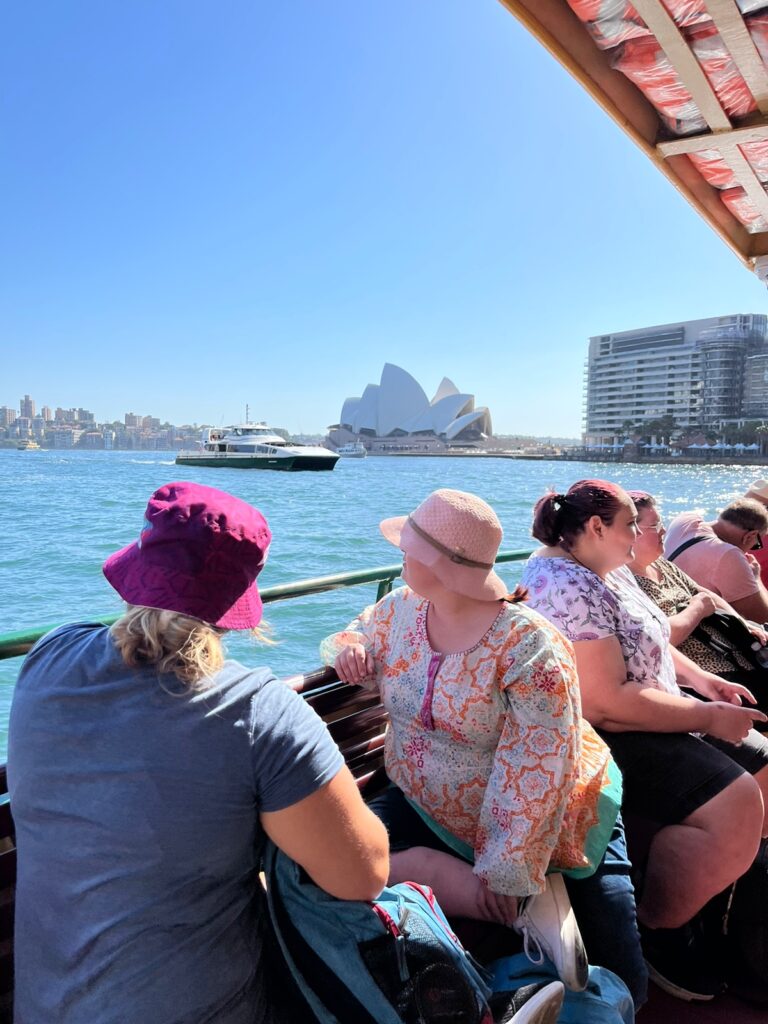While care can be a rewarding experience, it can also demand a tremendous amount of dedication and effort. The demands of attending to the needs of a loved one can be physically and emotionally draining. That is why it is equally important for both parties to have some well-deserved respite to refresh and recharge.
Recognizing the significance of providing care while also acknowledging the challenges it poses, finding moments of respite becomes essential. This is where Short Term Accommodation comes in. Designed to provide temporary relief for both caregivers and individuals receiving care, allowing both individuals to return with renewed energy and focus.
In this blog, we explore Short Term Accommodation and how it serves as a vital component in any caregiving journey – From understanding its core principles to unravelling the numerous benefits it offers.

Understanding Care Giver Burnout
Caregivers are driven by an unwavering commitment to the well-being of those they care for and often prioritise the needs of their loved ones over their own. This selfless dedication, coupled with long hours and a myriad of physical demands, can lead to a phenomenon known as caregiver burnout.
Caregiver burnout refers to the overwhelming physical, emotional, and mental exhaustion that caregivers may experience when the demands of caregiving become too taxing. While care is rewarding and crucial, it is equally important to ensure the overall health and well-being of the carer are integral to providing effective care.
What is Short-Term Accommodation (Respite Care)?
NDIS Short-term accommodation, also known as respite care, provides temporary relief for both individuals with disabilities and their caregivers. It is a crucial service that offers a break from the daily routines and responsibilities associated with caring for someone with a disability. Respite care can be provided in various settings, including specialised facilities, community-based programs, or even in the individual’s own home with the assistance of support workers.

The Different Types Of Respite Care
Respite care can take different forms, depending on the needs and preferences of the caregiver and the care recipient. Some common types of respite care include:
- Informal Respite Care: This type of care is non-professional care that can be provided by a friend or family member that is not a primary caregiver.
- In-home respite care: This type of respite care involves a trained professional coming to the caregiver’s home to provide care for the loved one. It can include assistance with daily activities, companionship, and medical support.
- Residential respite care: This option involves the care recipient staying in a residential facility for a short period of time. These facilities are equipped to provide the necessary care and support, allowing caregivers to take a break knowing their loved one is in good hands.
- Out-of-home respite care: This type of respite care involves the care recipient staying in a different environment, such as a community centre or respite cottage. It provides a change of scenery and social interaction for the care recipient while giving the caregiver a break.
- Emergency Respite: This refers to alternative care accommodation or at-home support in the event of an emergency, where the primary carer is unable to provide care.
How Long Can Someone Stay In Respite Care?
The duration of respite care stays can vary depending on the needs and circumstances of the individual and their caregiver. Short-term accommodation can range from several hours and overnight to a few weeks, providing much-needed relief for caregivers and an opportunity for individuals with disabilities to engage in new experiences and activities. The length of the stay can be tailored to the specific requirements of the individual and their caregiver, ensuring that both parties benefit from the respite period.

The Benefits Of Short Term Accommodation For Respite
There are numerous benefits of short-term accommodation for respite, both for individuals with disabilities and their caregivers. These include:
- Physical and emotional recharge: Respite care allows caregivers to take a break from their responsibilities and focus on their own physical and mental well-being. This recharge is essential for preventing burnout and maintaining a high level of care for their loved ones.
- Increased socialisation: Respite care provides both carers and care recipients with the opportunity to interact with others and engage in social activities. This can help combat feelings of isolation and contribute to their overall well-being.
- Peace of mind: Knowing that their loved ones are well cared for and safe during their break can provide caregivers with peace of mind. This allows them to relax and fully enjoy their time away, knowing that their loved ones are in capable hands.
- Improved Care: Respite care allows caregivers to take a much-needed break, recharge, and attend to their own needs, appointments and more. By taking care of their own well-being, caregivers are better equipped to provide quality care to their loved ones.
Making The Most Of Respite Care
Respite care, with its potential to offer much-needed relief to caregivers, becomes a valuable tool in navigating care. Here is how to make the most of respite care:
- Plan ahead: Caregivers should schedule regular breaks in advance to ensure they have time to recharge and address their own needs. Planning ahead also enables them to explore and select suitable respite care options that align with their specific requirements.
- Communicate with the care recipient: Involving the care recipient in the decision-making process is crucial. Caregivers should inform them about the upcoming respite care, seeking their input. This inclusive approach helps ease any anxiety or concerns the care recipient may have and ensures a smooth transition during the break.
- Use the break wisely: Caregivers, during their time away from caregiving responsibilities, should engage in activities that bring them joy and relaxation. Whether it’s pursuing a hobby, spending time with friends, or simply enjoying quiet moments, making the most of the break is essential for personal rejuvenation.
- Maintain Regular Check-Ins: While taking a break is essential, maintaining regular check-ins with the care recipient is equally important. These check-ins provide reassurance and help caregivers stay connected.
Read More: Understanding Support Coordination In The NDIS

Embracing the Importance of Respite Care
The power of a break should not be underestimated. Short-term accommodation, or respite care, offers caregivers the opportunity to take much-needed breaks, recharge, and attend to their own well-being. Additionally, the benefits of respite care extend beyond the caregiver, positively impacting the care recipient’s socialisation and overall well-being as well.
Discover the transformative benefits of Short-Term Accommodation (STA) with Shine Social. We understand the importance of respite care in enhancing your well-being and providing a secure retreat when needed, whether it’s a planned break or during emergencies. From one night to 14 days, we are here to offer you a safe and nurturing space. Get in touch today to learn more.




